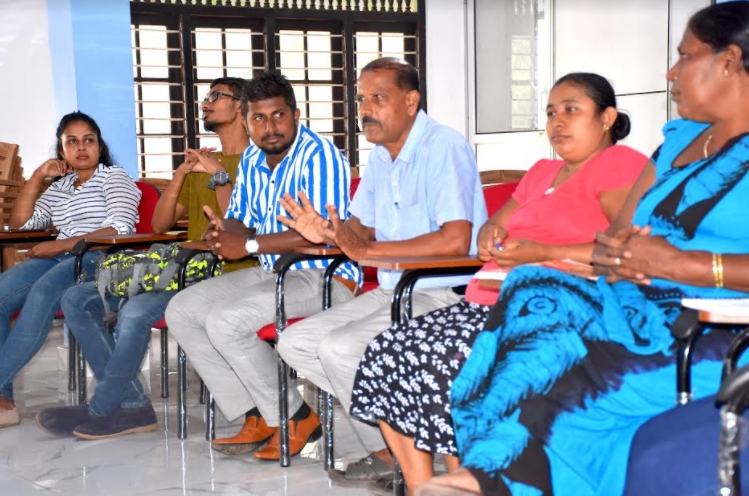Capacity building for Civil Society Organizations (CSOs) on Preventing Violent Extremism (PVE) in Sri Lanka and Bangladesh is an initiative implemented in Sri Lanka by NPC with support from Helvetas Sri Lanka and funded by the European Union (EU). The intervention is part of EU’s support to civil society actors in promoting confidence building and preventing radicalisation in South Asia.
The project is being implemented across six districts in Vavuniya, Mannar, Ampara, Batticaloa, Kandy and Kurunagala.
To identify issues in relation to Violent Extremism (VE) in the districts, project staff visited the different districts and held planning meetings and consultations with state institutions including
District Secretaries and Divisional Secretaries as well as NGO coordinators.
A primary purpose of the project is to capacitate at least 22 district-based CSOs and Community Based Organizations (CBOs) with knowledge and practical skills to address VE in their localities.
NPC works with one partner CSO in each of the districts and at least five identified CSOs and CBOs with the skills and knowledge to receive training in VE and share the knowledge with other community members. A team of NPC project staff and Helvetas Sri Lanka staff carried out the meetings.
In Ampara, some of the issues identified included segregation at public events including sports festivals, lack of interest among youth to make friends with members of other communities, and the high use of social media to misinterpret and present wrong information leading to ethnic and religious tension.
It was also mentioned that after the Easter Sunday attacks, acts of racism and extremism escalating to violence have significantly reduced in the Ampara District. Programmes for youth including language and culture-based exchanges and sports events were identified as possible future activities to be included in the intervention.
In Batticaloa, officials pointed out that mono ethnic communities lived in segregation with little or no connection with other communities. With an ethnic composition of 73% Tamil and 25% Muslim (and 2% Sinhalese) the two major communities live as separate groups with the exception of the Batticaloa town where all ethnic groups coexist. Youth were identified as the most vulnerable group ripe for recruitment by extremists. A request was made for PVE interventions to target youth groups and work with them to reach a larger community of vulnerable multi ethnic youth. Interventions focused on fostering religious and cultural understanding.
In Vavuniya, civil society representatives and religious leaders emphasised the important role that religious leaders have in leading communities, especially youth, away from extremism. They said that language was a barrier when promoting peace and reconciliation in the district.
In Mannar, discussion centred around the role of social media in facilitating the spread of misinformation, generating hate speech and instigating violence and extremism in communities. It was noted that the intervention should be sustained beyond the project period because PVE was part of everyday life. In Kandy, it was noted that the population in Akurana was made up of nearly 80 per cent Muslims but only 20 per cent of the staff at the Divisional Secretariat could speak Tamil. Some of the key points dis used at the meeting included the role of religious leaders in preventing VE, designing activities to address organized racism, and the destructive forces of social media including the spread of false narratives giving rise to violence.
In Kurunagala, it was revealed that youth were susceptible to many vices due to the lack of education and employment opportunities. The group pointed out that there should be PVE activities targeting religious leaders as they had the moral authority within their constituencies.
In all six project districts, youth were seen as a possible target susceptible to influences by extremist groups and social media as a tool used to incite violence and spread false narratives among communities.

